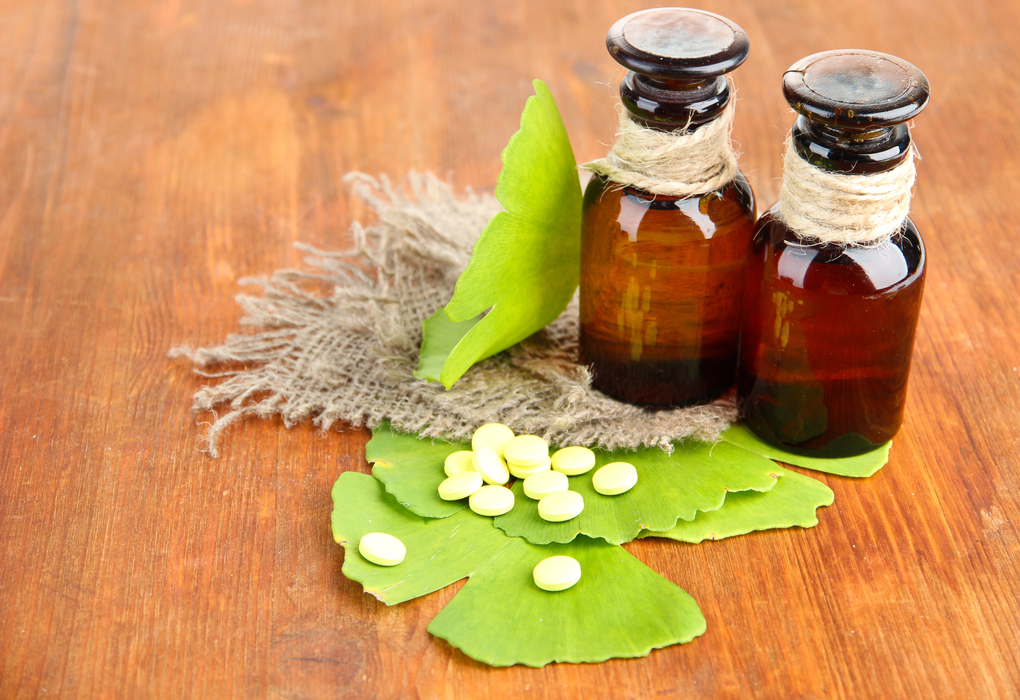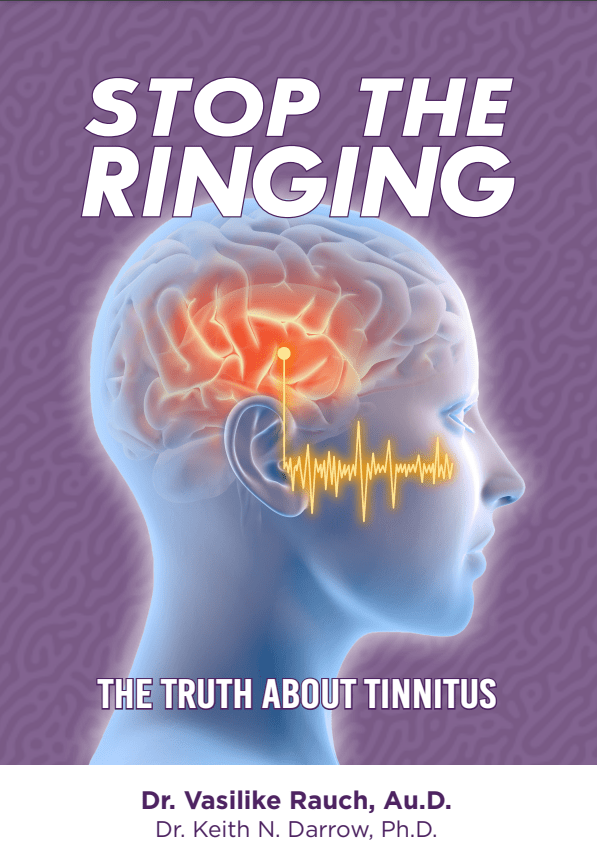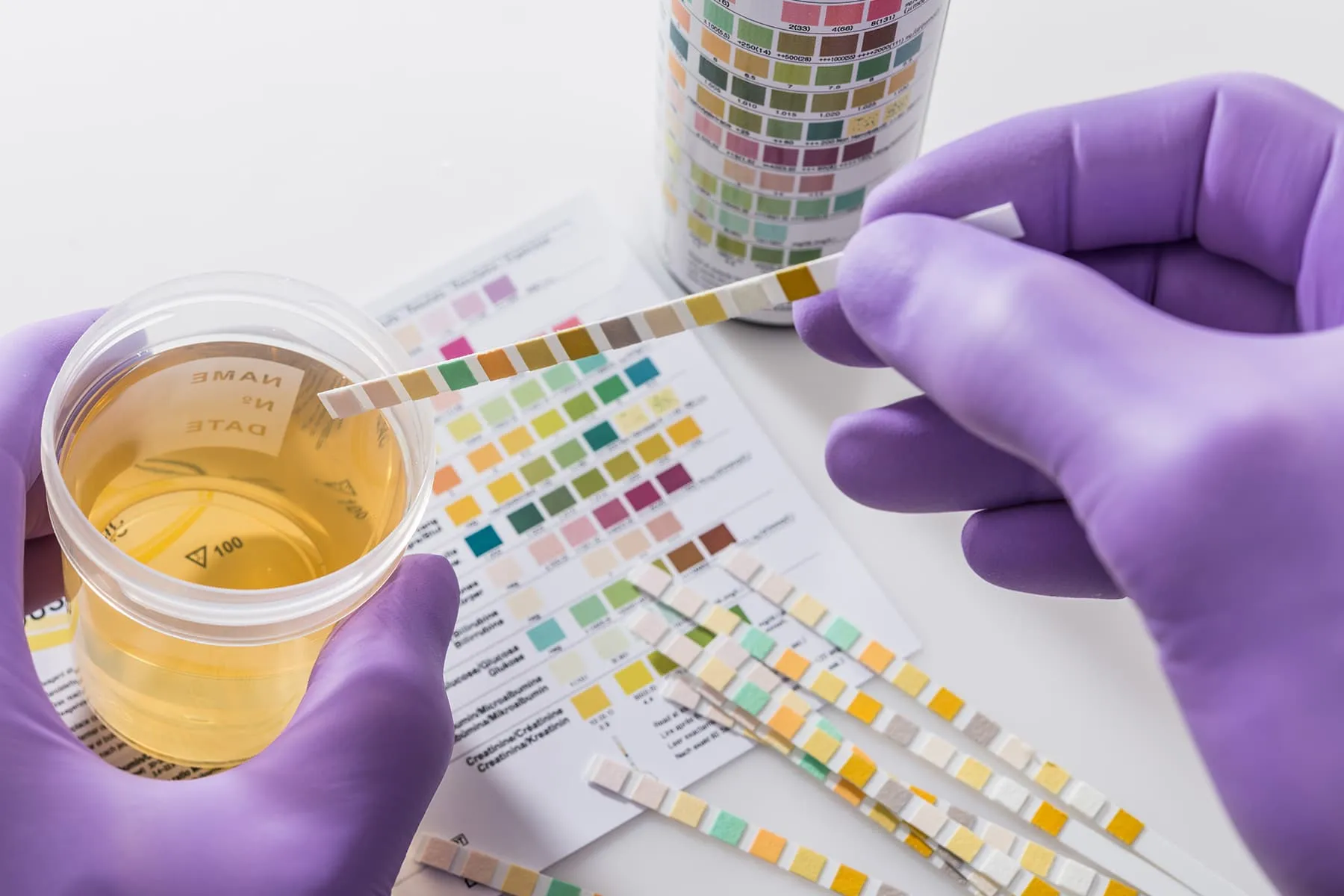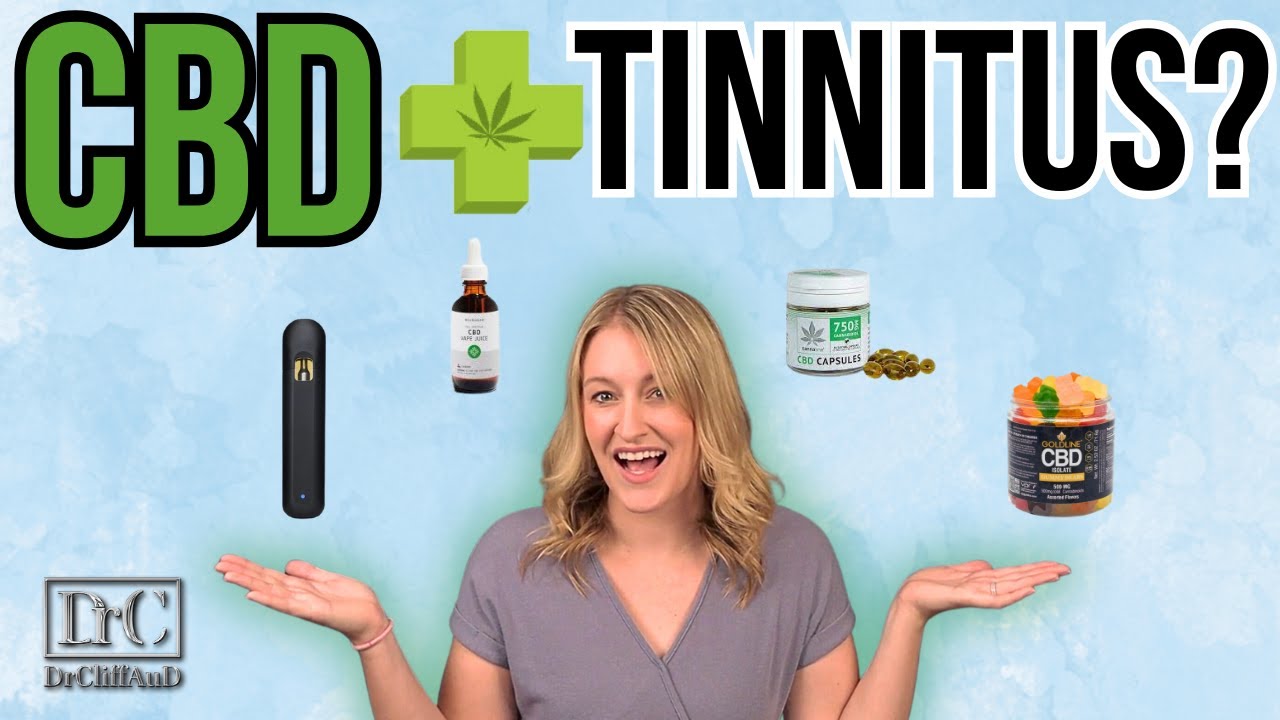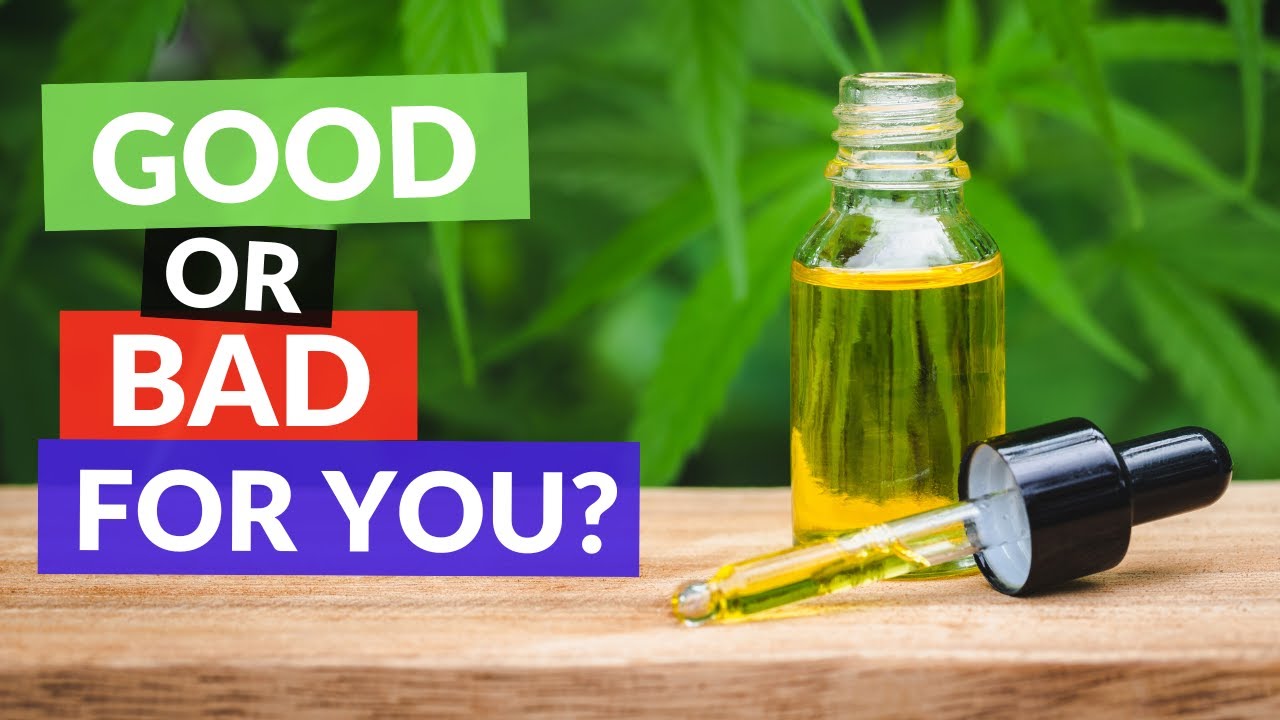Key Takeaways
- CBD oil has potential benefits for managing tinnitus-related symptoms like anxiety and sleep disruption, but little evidence supports its ability to reduce actual tinnitus sounds
- Research from animal studies suggests CBD might worsen tinnitus in some cases due to its effects on the dorsal cochlear nucleus
- CBD’s anti-inflammatory and anxiolytic properties may help address secondary issues associated with tinnitus even if it doesn’t directly treat the condition
- Quality matters tremendously when selecting CBD products, with third-party testing being essential for safety and efficacy
- Consulting with healthcare providers before trying CBD for tinnitus is crucial, especially if you’re taking other medications that might interact with cannabinoids
The Truth About Tinnitus: A Frustrating Reality for Millions
“Professional Hearing Management – Books …” from prohearingmgmt.com and used with no modifications.
That constant ringing, buzzing, or hissing in your ears that no one else can hear? You’re not imagining it. Tinnitus affects approximately 50 million Americans, with about 20 million experiencing chronic symptoms and 2 million suffering from debilitating cases. This persistent phantom sound isn’t actually a disease but rather a symptom that something’s off in your auditory system.
Living with tinnitus means enduring sounds that range from mild background noise to overwhelming sensations that interfere with concentration, sleep, and overall quality of life. What makes tinnitus particularly challenging is its subjective nature – the experience varies dramatically between individuals, and traditional medicine often falls short in providing effective solutions. Many sufferers describe feeling dismissed by medical professionals who simply tell them “to learn to live with it.”
“Tinnitus doesn’t just affect hearing – it impacts sleep, concentration, emotional wellbeing, and can lead to anxiety and depression. The constant nature of symptoms means patients are desperate for any relief, which explains the growing interest in alternative treatments like CBD oil.”
The frustration has led many to explore complementary approaches, with CBD oil emerging as a popular option. While conventional treatments like sound therapy, cognitive behavioral therapy, and hearing aids remain the standard of care, people are increasingly turning to natural remedies in hopes of finding relief where traditional medicine has left them wanting.
Why CBD Oil Might Help Your Tinnitus Symptoms
CBD (cannabidiol) has exploded in popularity as a natural remedy for various conditions, and tinnitus sufferers have naturally wondered if it might help them too. While CBD won’t cure tinnitus, there are several mechanisms through which it might provide relief for some of the condition’s most troublesome aspects. Understanding these potential benefits requires looking at how CBD interacts with your body’s systems and the secondary effects of tinnitus that often cause the most distress.
How CBD Interacts With Your Body’s Endocannabinoid System
Your body naturally produces compounds similar to those found in cannabis plants through what’s called the endocannabinoid system (ECS). This complex cell-signaling system plays a role in regulating everything from sleep and mood to pain and immune response. CBD interacts with this system, particularly with receptors found throughout your body, including your auditory pathways.
The CB1 and CB2 receptors of the ECS are present in areas of the brain involved in auditory processing. In theory, CBD’s interaction with these receptors could influence how your brain processes and responds to the phantom sounds of tinnitus. Some research suggests that imbalances in the endocannabinoid system might contribute to neurological conditions, potentially including the neural hyperactivity associated with tinnitus. For those exploring alternative therapies, herbal remedies for tinnitus may offer additional insights into managing symptoms.
Additionally, CBD may help maintain homeostasis (balance) within body systems. Since tinnitus often worsens during periods of stress or poor sleep – both situations where homeostasis is disrupted – CBD’s balancing effects might indirectly help manage tinnitus symptoms by addressing these triggers. For more insights on managing stress-related tinnitus, consider exploring yoga for tinnitus relief.
| ECS Component | Location | Potential Relation to Tinnitus |
|---|---|---|
| CB1 Receptors | Brain, auditory pathways | May influence sound processing and perception |
| CB2 Receptors | Immune cells, some neurons | Could affect inflammatory responses in the ear |
| Endocannabinoids | Throughout body | Balance in this system may influence neural hyperactivity |
CBD’s Anti-Inflammatory Properties and Ear Health
Inflammation plays a significant role in many forms of tinnitus, particularly those resulting from ear infections, acoustic trauma, or Meniere’s disease. CBD has demonstrated potent anti-inflammatory properties in multiple studies, potentially offering benefits for inflammation-related tinnitus. By reducing inflammatory responses in the auditory system, CBD might help address one of the underlying contributors to tinnitus symptoms in some cases.
Anxiety Reduction Benefits That May Ease Tinnitus Distress
Perhaps the most promising aspect of CBD for tinnitus sufferers is its well-documented anxiolytic (anxiety-reducing) effects. The relationship between tinnitus and anxiety works in both directions – anxiety can worsen tinnitus perception, and tinnitus can trigger or worsen anxiety. This creates a vicious cycle that many sufferers find difficult to break. CBD’s ability to reduce anxiety levels through its interaction with serotonin receptors could help interrupt this cycle, making tinnitus symptoms more manageable even if the actual sound remains unchanged.
Beyond anxiety, CBD may help with sleep disturbances – another common complaint among tinnitus sufferers. Many report that tinnitus becomes most noticeable and troublesome when trying to fall asleep in a quiet environment. CBD’s potential to improve sleep quality could provide indirect benefits by helping people fall asleep despite the presence of tinnitus sounds.
What Science Actually Says About CBD for Tinnitus
“CBD: Will It Cause Me to Fail a Drug Test?” from www.webmd.com and used with no modifications.
Despite the theoretical mechanisms that suggest CBD might help with tinnitus, it’s essential to examine what scientific evidence actually shows. The current research landscape is limited but provides some important insights that anyone considering CBD for tinnitus should understand.
Current Research Findings and Limitations
The honest truth is that specific research on CBD for tinnitus is sparse. Most studies have been conducted on animals, with few controlled human trials focusing specifically on CBD and tinnitus. One of the most frequently cited studies actually raises concerns rather than support for CBD use in tinnitus.
- A 2015 study published in Frontiers in Neurology found that CBD and THC might actually increase, rather than decrease, tinnitus in rats with noise-induced hearing damage
- Research from the University of Western Ontario suggested cannabinoid receptors in the dorsal cochlear nucleus could potentially worsen tinnitus when activated
- A 2020 review of available studies found insufficient evidence to recommend cannabinoids for tinnitus treatment
- Most positive reports come from anecdotal evidence and small-scale observational studies
- No large-scale clinical trials have conclusively demonstrated CBD’s efficacy for tinnitus relief
The limitations of current research are significant. Many studies use animal models that may not translate directly to human experience. Additionally, the high variability in CBD products, dosages, and individual responses makes it difficult to draw definitive conclusions from existing studies. The subjective nature of tinnitus itself further complicates research, as measuring changes in symptoms relies heavily on patient reporting rather than objective measurements.
The Mixed Results from Clinical Studies
The limited clinical data on CBD and tinnitus presents a confusing picture. While some tinnitus sufferers report subjective improvements after using CBD products, controlled studies have yet to demonstrate consistent, measurable benefits. A 2020 survey of tinnitus patients who tried CBD found that approximately 25% reported some symptom relief, primarily in the areas of sleep quality and anxiety reduction rather than actual tinnitus volume or frequency.
Interestingly, while direct tinnitus relief evidence is lacking, studies examining CBD for conditions often comorbid with tinnitus show more promise. Research published in The Permanente Journal demonstrated CBD’s effectiveness for anxiety and sleep disorders – two conditions that frequently accompany and exacerbate tinnitus. This suggests CBD might best serve as a complementary approach that addresses the secondary impacts of tinnitus rather than the primary auditory symptoms.
What Medical Professionals Think About CBD for Tinnitus
Medical opinions on CBD for tinnitus vary widely, largely reflecting the limited and sometimes contradictory research available. Audiologists and ENT specialists typically maintain cautious positions, acknowledging potential benefits for tinnitus-related anxiety while emphasizing the lack of evidence for direct symptom improvement. Most reputable hearing health professionals won’t outright recommend CBD specifically for tinnitus but may support its use for managing associated stress if patients express interest.
Dr. Robert DiSogra, a leading audiologist who has studied cannabinoids and tinnitus, notes that while many patients report subjective improvements, “there is currently no compelling evidence from human studies that CBD or other cannabinoids are effective in the treatment of tinnitus.” This highlights the gap between anecdotal reports and scientific evidence that defines the current state of CBD for tinnitus treatment.
Potential Risks You Should Know Before Trying CBD
“CBD Statistics” from www.mastermindbehavior.com and used with no modifications.
Despite CBD’s generally favorable safety profile, several important risks and considerations exist for tinnitus sufferers contemplating this approach. Being fully informed about these potential downsides is essential before adding CBD to your tinnitus management strategy.
Possible Side Effects to Watch For
While CBD is generally well-tolerated, it can cause adverse reactions in some individuals. Common side effects include dry mouth, drowsiness, changes in appetite, and digestive issues like diarrhea. Some users report fatigue or lightheadedness, particularly when first starting CBD or when taking higher doses. More concerning for tinnitus sufferers specifically, some users have reported increased awareness of tinnitus sounds after CBD use – though whether this represents actual worsening or simply heightened awareness remains unclear.
CBD can also temporarily affect blood pressure, typically causing a small drop that most people won’t notice but which could be significant for those with existing blood pressure issues. Anyone with cardiovascular concerns should consult their doctor before trying CBD, especially since tinnitus can sometimes be related to vascular conditions.
The Dorsal Cochlear Nucleus Concern: Could CBD Make Tinnitus Worse?
Perhaps the most significant caution regarding CBD for tinnitus comes from research on the dorsal cochlear nucleus (DCN), a brain region involved in auditory processing and potentially in tinnitus generation. Animal studies have found that cannabinoids may actually increase the excitability of neurons in this region, potentially intensifying rather than alleviating tinnitus sounds.
A study published in Hearing Research demonstrated that CB1 receptor activation in the DCN – something that some cannabinoids can trigger – increased the firing rate of neurons associated with tinnitus in rats. This suggests a plausible mechanism through which CBD products, particularly those containing THC or other cannabinoids that more strongly activate CB1 receptors, could theoretically worsen tinnitus symptoms in some individuals. For those seeking alternative solutions, exploring herbal remedies for tinnitus might offer some relief.
Drug Interactions With Medications You May Be Taking
CBD can interact with numerous medications by affecting the cytochrome P450 enzyme system, which is responsible for metabolizing many drugs. Similar to grapefruit, CBD can inhibit this enzyme system, potentially increasing blood levels of certain medications to potentially dangerous levels. This is particularly concerning for tinnitus patients, who may be taking medications for hearing disorders, anxiety, sleep problems, or other comorbid conditions frequently associated with tinnitus.
How to Choose the Right CBD Oil for Tinnitus
“Does CBD Cure Tinnitus? – YouTube” from www.youtube.com and used with no modifications.
If you decide to try CBD despite the limited evidence and potential risks, selecting a high-quality product becomes paramount. The CBD market remains largely unregulated, with significant variation in product quality, potency, and safety. Knowing what to look for can help you make a more informed choice if you’re considering this route.
Full-Spectrum vs. Broad-Spectrum vs. CBD Isolate
CBD products typically fall into three main categories, each with potential implications for tinnitus sufferers. Full-spectrum CBD contains all compounds naturally occurring in the cannabis plant, including trace amounts of THC (below 0.3% in federally legal products). These products leverage the “entourage effect,” where multiple cannabis compounds work synergistically, potentially enhancing therapeutic effects. However, the presence of THC and other cannabinoids could theoretically increase the risk of affecting DCN activity in ways that might influence tinnitus. For those exploring alternative treatments, herbal remedies for tinnitus might also be worth considering.
Broad-spectrum CBD offers a middle ground, containing multiple cannabis compounds but with THC removed. This option may provide some entourage benefits without THC exposure, potentially reducing risks for tinnitus sufferers concerned about the DCN interaction. CBD isolate contains only pure CBD with all other compounds removed, offering the purest and most predictable option but without entourage benefits. For tinnitus sufferers concerned about the DCN research, isolate products represent the most cautious choice, though even pure CBD’s effects on tinnitus remain understudied.
Potency Considerations for Beginners
For those new to CBD, starting with lower potency products allows for more precise dosing and reduces the risk of side effects. Look for products that clearly state their CBD content in milligrams per serving, not just per bottle. Beginners should consider products with 5-10mg of CBD per serving, gradually increasing if needed. This “start low, go slow” approach is particularly important for tinnitus sufferers, given the mixed research and reports of symptom changes with CBD use.
5 Quality Markers That Separate Good Products From Bad
The quality gap between premium and substandard CBD products is substantial. Look for products from companies that provide comprehensive information about their sourcing, extraction methods, and quality control processes. Reputable manufacturers use organically grown hemp from regulated sources, employ clean extraction methods like CO2 extraction, and maintain consistent quality across batches. Transparency is key – companies should readily provide detailed information about their products and processes without vague marketing language or extravagant claims about curing tinnitus or other conditions.
Why Third-Party Testing Matters
Third-party laboratory testing represents the gold standard for CBD product verification, providing objective confirmation of content and purity. Quality products include a Certificate of Analysis (COA) from an independent laboratory that verifies CBD content, confirms the absence of harmful contaminants like pesticides and heavy metals, and measures THC levels to ensure legal compliance. For tinnitus sufferers especially, knowing exactly what’s in your CBD product is crucial given the theoretical risks associated with certain cannabinoids and DCN activity.
“Never purchase CBD products without verified third-party testing results. The gap between what’s on the label and what’s in the bottle can be substantial in unverified products, creating both safety risks and effectiveness issues. For conditions like tinnitus where the evidence is already limited, using untested products introduces unnecessary additional variables.”
When reviewing test results, pay particular attention to cannabinoid profiles to understand exactly which compounds are present and in what concentrations. Look for tests from accredited laboratories that include batch numbers matching your product, ensuring the tests represent what you’re actually purchasing rather than selective or outdated results. To learn more about how CBD might impact tinnitus, consider reading this CBD for tinnitus article.
Remember that reputable companies typically make these test results easily accessible through websites or QR codes on packaging. If you have to hunt extensively for this information or the company refuses to provide it, consider it a significant red flag regardless of how impressive their marketing claims may be.
Some specialized CBD companies have begun creating formulations specifically marketed for tinnitus sufferers, often combining CBD with other natural compounds like ginkgo biloba or magnesium. While these targeted products may seem appealing, apply the same quality standards in your evaluation, as specialized formulations remain subject to the same limited evidence base regarding direct tinnitus benefits.
The Best Ways to Use CBD Oil for Tinnitus Relief
“Amazon.com: Tinnitus Relief for Ringing …” from us.amazon.com and used with no modifications.
If you’ve decided to try CBD oil for your tinnitus symptoms, the method of administration can significantly impact both effectiveness and how quickly you might experience relief. While there’s no single “right way” to use CBD for tinnitus, certain approaches may offer advantages depending on your specific symptoms and preferences.
Recommended Dosages to Start With
CBD dosing remains largely personalized, with optimal amounts varying widely between individuals. Most experts recommend starting with 5-10mg of CBD once or twice daily, then gradually increasing by 5mg every few days until finding your effective dose. This cautious approach minimizes side effects while allowing you to identify the minimum effective dose for your needs. For tinnitus-related anxiety or sleep disruption, you might ultimately need between 25-75mg daily, though some individuals respond to lower or higher amounts.
Remember that factors including body weight, metabolism, symptom severity, and the specific CBD product all influence optimal dosing. Keeping a symptom journal during this calibration period helps track changes in both tinnitus perception and related issues like anxiety or sleep quality, providing valuable data to guide your approach. For more insights on using CBD for tinnitus, you can read this Medical News Today article.
Timing Your Doses for Maximum Effect
Strategic timing of CBD doses may enhance its benefits for tinnitus-related symptoms. For sleep difficulties, taking CBD approximately 30-60 minutes before bedtime allows the compound to reach peak blood levels as you’re trying to fall asleep. If anxiety or stress typically worsens your tinnitus perception at specific times, scheduling a dose approximately an hour before these challenging periods might help manage the emotional response.
Some users report benefits from dividing their total daily CBD amount into multiple smaller doses rather than a single larger dose. This approach maintains more consistent cannabinoid levels in your system throughout the day, potentially providing more stable symptom management for conditions like anxiety that can fluctuate with tinnitus perception.
Different Administration Methods (Sublingual, Topical, etc.)
Sublingual administration (placing drops under your tongue for 60-90 seconds before swallowing) remains the most popular method for CBD oil use and offers a good balance of absorption efficiency and ease of use. This approach allows CBD to enter your bloodstream directly through the mucous membranes, bypassing initial liver metabolism and typically producing effects within 15-45 minutes that may last 4-6 hours. For those interested in alternative methods of tinnitus relief, exploring herbal teas might be beneficial.
While less common for tinnitus specifically, some users explore topical CBD applications behind the ear or on the mastoid bone. Though scientifically unproven for tinnitus, this approach targets the area with minimal systemic effects. Inhalation methods like vaping provide the fastest onset (often within minutes) but shorter duration, while oral consumption through capsules or edibles offers longer-lasting effects (6-8 hours) but slower onset (45-90 minutes) and lower bioavailability due to liver metabolism.
Real Results: What You Can Actually Expect
“Is CBD a Solution for Tinnitus …” from www.youtube.com and used with no modifications.
Managing expectations is crucial when considering CBD for tinnitus. Despite enthusiastic testimonials online, the scientific evidence remains limited, and individual responses vary dramatically. Based on available research and clinical observations, CBD is unlikely to eliminate tinnitus sounds completely but might help make them less bothersome by addressing associated symptoms like anxiety, sleep disruption, and stress sensitivity. For those seeking alternative approaches, exploring herbal remedies for tinnitus might offer additional relief.
Realistic Timeline for Potential Benefits
CBD’s effects on tinnitus-related symptoms typically don’t appear immediately. Most users require consistent daily use for 2-4 weeks before noticing significant improvements in anxiety levels, sleep quality, or stress response. While some report more immediate effects, particularly for anxiety, sustainable benefits generally require this longer commitment. Improvements often appear gradually rather than dramatically, with subtle changes in how bothersome tinnitus feels rather than reductions in the actual sound perception.
For sleep improvements specifically, many users report changes within the first week, while anxiety reduction may take longer to stabilize. The most realistic expectation is modest improvement in your ability to cope with tinnitus rather than elimination of the condition itself. Patience and consistent use are essential for evaluating CBD’s potential benefits for your specific situation. For additional methods to manage tinnitus, you might explore yoga for tinnitus relief as a complementary approach.
Signs It’s Working vs. Signs to Stop
Positive indicators that CBD may be helping include reduced emotional reactions to tinnitus sounds, improved sleep quality, decreased anxiety levels, and finding tinnitus less intrusive in daily life even if the sound itself remains unchanged. Some users also report reduced muscle tension in the neck and jaw – areas often affected by the stress response to tinnitus. These subtle quality-of-life improvements often represent more realistic success markers than expecting the tinnitus sounds to disappear. For those exploring alternative remedies, understanding herbal remedies for tinnitus might offer additional insights.
Conversely, signs to discontinue CBD use include increased tinnitus volume or awareness, new or worsening side effects like dizziness or digestive issues, heightened anxiety, or sleep disruptions that weren’t present before. If you experience any of these negative changes, reducing your dose or stopping completely is prudent. Some negative responses occur temporarily during initial use before resolving, but persistent adverse effects warrant discontinuation and consultation with a healthcare provider.
Alternative Natural Remedies to Use Alongside CBD
“Natural Tinnitus Treatment Options You …” from www.amazon.sg and used with no modifications.
A comprehensive approach to tinnitus management typically combines multiple strategies rather than relying on any single intervention. If you’re considering CBD, integrating it with established tinnitus management techniques may offer synergistic benefits. This multi-modal approach acknowledges that tinnitus involves complex neural networks and often responds best to combinations of treatments addressing different aspects of the condition.
Sound Therapy Options That Complement CBD Use
Sound therapy remains one of the most established approaches for tinnitus management and pairs well with CBD’s potential calming effects. White noise machines, tabletop sound generators, smartphone apps with nature sounds, or specially designed hearing aids with masking features can help reduce tinnitus perception by providing competing auditory input. These sound-based interventions work particularly well during quiet periods when tinnitus typically becomes most noticeable, such as bedtime – a time when CBD’s potential sleep benefits might also prove helpful.
Notched music therapy, which filters out frequencies matching your tinnitus pitch, represents a more targeted sound approach that some research suggests may help retrain the brain’s response to tinnitus over time. Combined with CBD’s potential neurological balancing effects, this dual approach addresses both the auditory and emotional processing aspects of tinnitus perception.
Stress-Reduction Techniques That Enhance Results
Stress management practices significantly impact tinnitus perception and may complement CBD’s anxiolytic properties. Regular mindfulness meditation has demonstrated effectiveness for tinnitus distress in multiple studies, with practices as brief as 10-15 minutes daily showing measurable benefits. Progressive muscle relaxation, deep breathing exercises, and gentle yoga specifically targeting neck and jaw tension can all help reduce the physical manifestations of stress that often amplify tinnitus awareness.
Cognitive behavioral therapy (CBT) specifically adapted for tinnitus represents one of the most evidence-supported approaches available. This structured therapy helps reshape negative thought patterns about tinnitus and develops coping strategies that reduce its emotional impact. When combined with CBD’s potential anxiety-reducing effects, these psychological approaches may create a more comprehensive management strategy that addresses both physiological and cognitive aspects of tinnitus distress.
Dietary Changes That May Help Both Tinnitus and CBD Absorption
Several dietary modifications may benefit both tinnitus symptoms and enhance CBD effectiveness. Reducing sodium intake helps manage fluid pressure in the inner ear for some tinnitus types, while limiting caffeine, alcohol, and processed sugar may reduce symptom flare-ups. Anti-inflammatory foods like fatty fish, berries, nuts, and leafy greens support overall ear health and may complement CBD’s anti-inflammatory properties.
From a CBD absorption perspective, taking your dose with fatty foods can significantly increase bioavailability by up to four times compared to taking it on an empty stomach. Healthy fats like avocado, nuts, or a small amount of olive oil taken alongside CBD oil can enhance absorption without negatively impacting tinnitus. Staying well-hydrated also supports both general ear health and helps maintain the endocannabinoid system’s optimal function.
When to Talk to Your Doctor About CBD and Tinnitus
“Understanding Tinnitus: Causes …” from treblehealth.com and used with no modifications.
Open communication with healthcare providers remains essential when considering CBD for tinnitus, despite the sometimes challenging landscape of medical opinions on cannabinoids. While some practitioners may have limited knowledge about CBD specifically, their understanding of your overall health profile and current medications provides crucial context for making informed decisions. This conversation becomes particularly important if you’re taking other medications or have underlying health conditions that might influence either tinnitus or CBD’s effects.
Important Medical Conversations to Have First
Before trying CBD, discuss your complete medication list with your doctor to identify potential interactions. This includes prescription medications, over-the-counter drugs, supplements, and herbs – all of which could interact with CBD through the cytochrome P450 pathway. Be specific about the type of CBD product you’re considering, including whether it contains THC or other cannabinoids, as this information helps your provider assess possible risks more accurately.
If you’ve never had a formal tinnitus evaluation, requesting one before starting CBD provides important baseline information. Identifying potential underlying causes like hearing loss, ear infections, or vascular issues ensures you’re not missing treatable conditions. Some tinnitus has specific medical causes that require direct intervention rather than symptom management approaches like herbal remedies like CBD.
Red Flags That Require Immediate Medical Attention
Certain tinnitus patterns warrant urgent medical care and shouldn’t be self-treated with CBD or other supplements. Pulsatile tinnitus (sounds that match your heartbeat), sudden onset tinnitus especially if accompanied by hearing loss, tinnitus in only one ear, or tinnitus with vertigo, significant hearing changes, or ear pain all require prompt medical evaluation. These symptoms can indicate serious underlying conditions like acoustic neuroma, Meniere’s disease, or vascular abnormalities that need specific medical treatments.
If you experience new or worsening symptoms after starting CBD – whether related to tinnitus or general health – discontinue use and consult your healthcare provider immediately. While rare, significant changes in blood pressure, heart rate, or new neurological symptoms after CBD use should prompt medical attention, as they could indicate an adverse reaction or interaction with other medications.
Frequently Asked Questions
As interest in CBD for tinnitus grows, certain questions consistently emerge from those considering this approach. While individual circumstances vary, these responses address common concerns based on current understanding of both CBD and tinnitus.
Is CBD oil legal to use for tinnitus treatment?
Hemp-derived CBD oil containing less than 0.3% THC is federally legal in the United States following the 2018 Farm Bill, though state laws vary significantly. Some states maintain stricter regulations or require specific licensing. International legality varies dramatically by country, with some nations permitting CBD only by prescription and others prohibiting it entirely. Research your specific location’s laws, as they continue evolving rapidly. Importantly, while CBD itself may be legal in your area, marketing it specifically as a tinnitus treatment may face regulatory restrictions since the FDA has not approved CBD for this purpose.
How long should I try CBD oil before deciding if it works for my tinnitus?
Most experts recommend a minimum 30-day trial with consistent daily use before evaluating CBD’s effectiveness for tinnitus-related symptoms. This timeframe allows for both dosage adjustment and the development of cumulative effects that might not be apparent initially. Keep a detailed symptom journal during this period, tracking tinnitus perception, emotional responses, sleep quality, and any side effects. Note that benefits typically appear gradually rather than dramatically, with improvements in how you cope with tinnitus often preceding any changes in the actual sound perception. For additional natural remedies, consider exploring herbal teas for tinnitus relief.
Can I take CBD oil with my current tinnitus medications?
CBD can interact with numerous medications by affecting liver enzymes responsible for drug metabolism. This interaction potentially increases blood levels of certain drugs, creating risk for side effects or toxicity. Medications with known or potential interactions include certain antidepressants, anti-seizure drugs, blood thinners, heart medications, and some antibiotics – many of which might be prescribed for conditions related to or concurrent with tinnitus.
Always consult your healthcare provider before combining CBD with any prescription medications. Provide complete information about your CBD usage, including product type, concentration, and dosage schedule. In some cases, timing adjustments or dosage modifications can help manage potential interactions while still allowing both treatments. For additional insights on alternative treatments, explore herbal remedies for tinnitus that may complement your regimen.
For over-the-counter tinnitus supplements like ginkgo biloba, magnesium, or zinc, limited research exists on specific interactions with CBD. The safest approach involves introducing one new supplement at a time with at least two weeks between additions to clearly identify effects and potential interactions.
- Medications metabolized by the cytochrome P450 enzyme system have the highest interaction potential
- Blood thinners like warfarin require particularly careful monitoring if used with CBD
- Some anti-anxiety medications may have additive effects when combined with CBD
- Medications with grapefruit warnings often interact with CBD similarly
- Even over-the-counter medications like NSAIDs may have altered effects when combined with CBD
Will my insurance cover CBD oil for tinnitus relief?
Most health insurance plans, including Medicare and Medicaid, do not currently cover CBD oil for tinnitus or other conditions. This lack of coverage stems from CBD’s limited FDA approval status (currently only approved for specific seizure disorders under the brand name Epidiolex) and insufficient clinical evidence for tinnitus specifically. Out-of-pocket costs for quality CBD products typically range from $40-$150 monthly depending on dosage, concentration, and product type – a significant consideration for ongoing use. Some Health Savings Accounts (HSAs) or Flexible Spending Accounts (FSAs) may allow CBD purchases with a doctor’s letter of medical necessity, though policies vary widely.
What’s the difference between hemp oil and CBD oil for tinnitus?
The distinction between hemp oil and CBD oil creates significant confusion for consumers. Hemp seed oil, sometimes simply labeled “hemp oil,” comes from pressed hemp seeds and contains beneficial nutrients and fatty acids but virtually no cannabinoids like CBD. While nutritionally valuable, hemp seed oil lacks the potential therapeutic cannabinoid content that might benefit tinnitus-related symptoms. Conversely, CBD oil is extracted from hemp plant flowers and contains concentrated cannabidiol along with varying levels of other cannabinoids depending on the extraction process.
For potential tinnitus symptom management, only products containing actual cannabidiol (CBD) offer the theoretical benefits discussed in this article. Unfortunately, some companies deliberately blur this distinction in marketing, labeling hemp seed oil products in ways that imply CBD content. Always verify the actual CBD content in milligrams on product labels and third-party test results rather than relying on general terms like “hemp extract” or “cannabis sativa oil.” For those interested in alternative remedies, you might explore herbal teas for tinnitus relief as a natural option.
If you’re considering trying CBD for tinnitus symptoms, remember that quality matters tremendously. Look for reputable companies that provide comprehensive third-party testing, clear ingredient lists, and realistic descriptions of potential benefits. While CBD won’t cure tinnitus, it may help some individuals better manage the condition’s impact on daily life as part of a comprehensive approach to tinnitus care.
